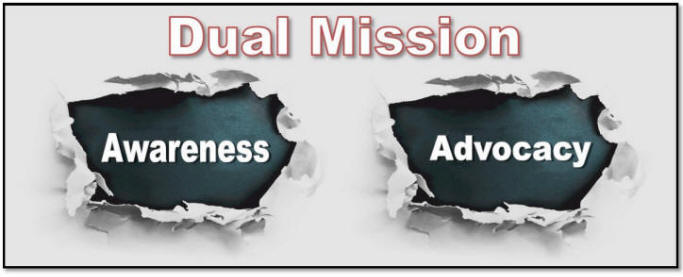|
Veterans with Cancer Inc.
-
Who Are We?
|
We are a small group of
veterans who share a common bond - our service-related cancer. We have
come together to share information on our individual journeys and
hopefully help others in the process to navigate the Veterans Affairs
Canada (VAC) somewhat bureaucratic processes. One of main goals is to
persuade VAC to make the process easier for veterans by recognizing
Carbon Tetrachloride as a known cause of cancer for many veterans. This
is why it's important for you to sign our register so we can show the
ministry that Carbon Tetrachloride related cancer is not isolated to a
few disgruntled veterans.
 |
|
Advocating for Process Changes on
Behalf of all Veterans while ... |
|
Raising Awareness That Veterans
Cancers May be Service-Related |
|
Chemical Exposure: A Hidden Injury
Unlike physical injuries sustained during deployment, exposure to
carcinogenic chemicals may not show symptoms immediately. A veteran who
was exposed to toxic substances while in uniform might not experience
the effects of that exposure until many years later. In some cases, the
link between cancer and military service is not immediately obvious,
especially when the onset of cancer occurs long after the exposure.
Veterans who sustained a physical injury, such as a back injury from a
fall, can usually trace the cause of their injury directly to a specific
event. However, with chemical exposure, the long delay between exposure
and the appearance of cancer often obscures the connection to military
service. Moreover, because chemical-related injuries have many
equivalents in the civilian population, it can be harder for veterans to
recognize that their cancer may have been caused by the same chemicals
they were exposed to while in the military. |


Donald MacPhail
-
President
|
|
Carbon Tetrachloride in
the Communications & Electronics Branch
When I was a young soldier I used to see the old
guys get teased when they were scheduled to go for
their over 40 medical appointments. I really didn't
pay much attention at the time but I soon understood
the importance of it when I became one of the old
guys.
During my years of service as a Terminal Equipment
Technician in the Communications & Electronics
Branch I was routinely exposed to Carbon
Tetrachloride (CTC). It was used as a cleaning agent
to maintain the Electro-Mechanical telephone
switching equipment that was located in secure
buildings or underground bunkers. There was very
poor ventilation in these locations and little to no
protective gear provided.
I continued with annual medicals after retiring from
the Canadian Forces and in 2021 my PSA started to
creep upwards. My family Dr referred me to an
Urologist who performed a biopsy which showed 6 out
of 12 samples were positive for prostate cancer.
Three months later I started treatment which
consisted of 20 sessions of External Beam Radiation
along with 18 months of Hormone Therapy.
In November 2023 with the support of a fellow
Veteran I submitted my disability claim to Veterans
Affairs Canada (VAC) and started the task of getting
medical professionals to support my claim. I also
had to find someone who would provide a witness
statement to say I was exposed to CTC during my
military service. I was able to get a letter of
support from the Radiation Oncologist along with a
witness statement which was submitted to VAC to
support my claim.
On 15 Feb., 2024 my disability claim was still stuck at "waiting to be
assigned to a decision maker" stage of
the VAC disability claim process. Due to the recent
precedent of a successful appeal I believe I have a
good chance to have a positive outcome with my
initial claim and a VAC case worker told me that I
have provided a lot of good medical evidence to
support my case.
I recently applied for the Veterans Independence
Program (VIP) and after a nurse's assessment and
telephone interview I was approved for the program.
On 31 July 2024 I received more Good News! My
claim was approved and I was granted an award for my
Prostate Cancer due to exposure to Carbon
Tetracholoride.
Veterans with Cancer is
making a difference! I'm very hopeful
that together we will continue to impact VAC. They
are starting to accept that CTC is a known
carcinogen and in the future Veterans will no longer
have to jump through hoops to try and find a medical
specialist to support their disability claims for
cancer. |
|
|
Dr. Phillip Drew
-
Director
|
 |
|
Dr. Phillip
Drew
Kingston,
ON |
|
Read my Biography |
Toxic Chemicals On RADAR
Stations
My
career in the military spanned 31 years, first as an
Intelligence Officer, then as a lawyer. After being
medically released from the CF in 2014, I completed
my Doctoral degree in Law at the University of
Frankfurt (Oder), Germany, where I specialized in
International Law. Upon graduation, I was invited to
teach law at the Australian National University, a
fantastic experience that lasted four years.
Escaping Australia on one of the last flights before
the COVID shut down, I returned to Canada in March
2020 and was appointed as an Assistant Dean at
Queen’s University. I left that position in May 2024
and am now fully retired.
I have
joined Veterans With Cancer in honour of my father,
Reg Drew, who was a RADAR Technician from 1952-87.
As with so many of his colleagues, he developed
cancer and a number of other chronic illnesses as a
result of exposure to the highly toxic chemicals
that RADAR Techs worked with on a daily basis.
Although I no longer practice law, I bring my skills
and experience as a lawyer to the table, in the hope
that my contributions will have a positive impact on
veterans and their families.
|
|
|
Jim Hutton
-
Director
|
|
Carbon Tetrachloride in HMC Ships
I spent
the first seven (7) years of my 30 year career in the
Navy as a Fire-Control Technician where I helped to maintain
the ships aircraft tracking radar and analog
computer that calculated the lead angle for the 3”50
twin gun mount.
There really weren’t very many safety precautions at
the time. I spent many hours in the gun mount using
a sound-powered headset for communication which
provided no hearing protection. I recall my ears
ringing for days after 4-5 hours in the gun during
bombardments. As a result I have a hearing
disability pension from Veterans Affairs Canada (VAC).
During this period I was exposed to several cancer
causing chemicals.
I recall a monthly Planned
Maintenance Routine that required the removal of all
vacuum tube modules from 24 drawers of the computer.
All of the contacts had to be washed with Carbon
Tetrachloride – it was quite messy. I recall getting
high from the fumes and having stomach cramps the
following day. However, I never complained to Sick
Bay at the time which was a mistake. In denying my
claim they pointed out that there was no record of
my exposure. I believe it was my exposure to
Carbon Tetrachloride that caused my Prostate Cancer.
You can read about all of the hazards on RCN Ships
between 1960 and 1990 along with a short video on
the shipboard environment - Tap or Click Here - Shipboard Environmental Hazards.
When I retired in 1997 my PSA was high and continued
to elevate over the years. A biopsy confirmed that I
had Prostate Cancer. At the time I was given three
choices: 1. radiation seeds placed in the prostate;
2. beamed radiation aimed to reduce the size of the
tumor, or 3. a radical prostatectomy. Each option
came with its own side effects with the third option
having the most side effects which included
incontinence and sexual dysfunction.I
opted for option 3 because it was the only sure way
of getting all of the cancer. I also chose the
robotic surgery because it had the shortest recovery
and had the best chance of getting all of the cancer
cells. It turned out to be a good decision because
my tumor was quite large. I covered 60% of my
prostate. So the surgeon, who controls the robot
using a large 3D monitor, could identify all of the
cancerous tissue and remove it.
Although this option came with the worst side
effects It has the best probability that the cancer
won't return. As my wife tells me the side effects
are a small price to pay for having me around.
|
|
|
|





